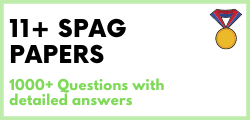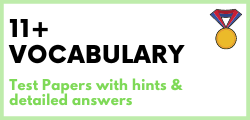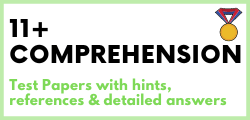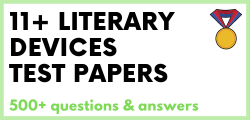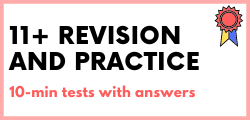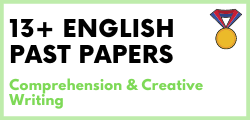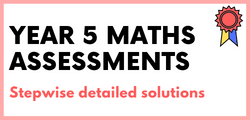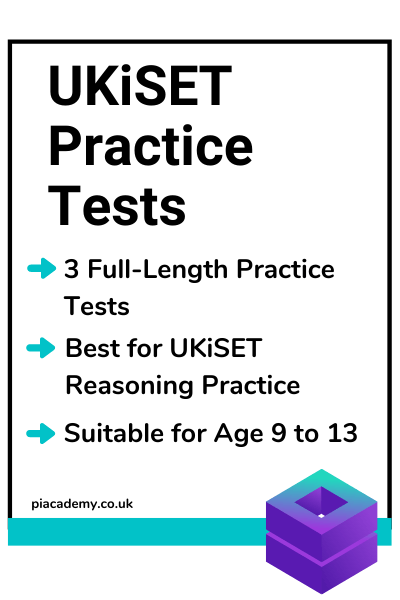What is the Ukiset Examination?
Ukiset Exam or the UK Independent Schools’ Entry Test is used to determine a student’s existing abilities as well as his / her aptitude for further learning. It is an online test that can be taken by students between the ages of nine-and-a-half and eighteen. Following three are the key elements of the UKiSET test:
- Reasoning
- Reading and Listening
- Essay Writing
Schools use the results of the UKiSET test – called a Profile Report – to determine if a student has the required abilities for admission to the school. Schools also use the Report to map out a study programme for the student, once he / she is admitted to the school.
Preparing for the Reasoning section
UKiSET sample tests are available to help a student prepare for the examination. The first section of the examination is the Reasoning Section, which is further divided into three subsections:
- Verbal reasoning
- Non-verbal reasoning
- Numerical reasoning
As can be understood by the name, the first sub-section tests the candidate’s ability to reason using language. Vocabulary, grammar and comprehension are tested using a series of questions on a sliding scale. This means that the test gets more difficult as a student answers more questions correctly and conversely, easier if the candidate answers questions incorrectly.
Ukiset sample papers pdfs are available to help an aspiring student prepare for the verbal reasoning sub-section of the test. These sample papers and practice test papers give the student a taste of the kind of questions to expect from the examination. While official UKiSET past papers are not published, sample papers give a student needed practice in tackling this sub-section.
Ukiset vocabulary lists are a great way to expand one’s vocabulary in preparation for the verbal reasoning sub-section of the Ukiset examination. These lists help expand the candidate’s vocabulary and ability to use words within their correct contexts.
In using UKiSET sample papers to prepare for the verbal sub-section of the exam, students must pay heed to the following:
- Pace: Students must practise answering the questions at speed so that they are prepared for the actual test, where questions must be answered within a specific period of time. Sample papers and past papers help to hone one’s speed in tackling the UKiSET verbal reasoning sub-section.
- Exactitude: Students must learn not to sacrifice accuracy in their quest to complete the sub-section within the time limit. It is important to remember that in the actual test, candidates are not allowed to backtrack and change their answers. Therefore, in answering sample papers and test papers – especially those used online for practice – candidates must learn to answer accurately. It is a good idea to answer UKiSET test papers, sample papers and past papers several times, and with several different papers, in order to develop speed and accuracy.
Similar sample papers and test papers are available for the candidate to practise the non-verbal part of the sub-section as well. This part uses patterns and shapes to gauge the student’s ability to reason. Practising with the help of these sample papers hones a student’s ability to recognise patterns and logically deduce the next in a series of shapes, or the odd one out in a series of patterns. Speed and accuracy are equally important in this part of the test as well, so it certainly helps to undertake several practice sessions using such papers.
The numerical part, sometimes also referred to as UKiSET maths, of the examination tests the candidate’s ability to process numbers logically. Several sample tests are available to help the student practise for this part. These papers are also best solved at speed, without sacrificing accuracy, to help the student tackle the actual examination with a high degree of success.
Preparing for the Reading and Listening (Cambridge English) section
The UKiSET english test (Cambridge English test) is an in-depth test of a candidate’s proficiency in the English language. It seeks to benchmark the student’s fluency in the English language. There are several ways in which a candidate can prepare for this section of the Ukiset examination.
Sample test papers provide an excellent base for the student to begin preparing for this section of the UKiSET exam. Such test papers give the student the opportunity to become familiar with the structure and content of the Cambridge English test. Cambridge University itself provides free online papers to help a student prepare for the test. In addition, students can access past papers from the Cambridge website to get a feel of the kind of test they must face.
It is also highly recommended that students hone their reading skills by accessing a wide range of age-appropriate reading materials. These materials range from books to blog posts, with a lot more in between; including news items, online stories, editorials, opinion pieces, etc. The more a student reads, the better he or she gets at scanning and absorbing a wide variety of texts, something that is definitely a plus while taking the Cambridge test.
Candidates are also encouraged to access a variety of audio inputs ranging from audiobooks to news channels and even TED talks. This will help them absorb the language organically and thus be able to tackle the Cambridge test part of the Ukiset exam with confidence.
Preparing for the Essay section
The essay writing section of the Ukiset examination is meant to test a candidate’s ability to write a piece of prose in response to a topic. Specifically, the candidate is expected to:
- Demonstrate a good command over spelling and grammar,
- Tackle a topic logically, providing valid arguments for or against the topic – or sometimes both – and
- Provide a valid and justifiable opinion about the topic.
Sample essay topics help a candidate practise before the exam. Ukiset essay questions are available from several sources, providing the candidate with plenty of opportunity to hone their essay writing skills. A good road map for writing a worthy essay is:
- Start with a list of points: While it is often tempting to start writing the essay straight away, the candidate will do well to first make a list of points about the topic. This and the next step helps tackle a crucial requirement of a superlative essay; structure.
- Refine and reorder the points: The next step is to eliminate obviously bad ideas and narrow the list down to the most essential points. At this stage the candidate may also reorder the points so that they flow in logical order.
- Write the essay following a three-part skeleton; namely, introduction, argument and conclusion. Typically, the introduction will be one paragraph long, the arguments will be split between three to four paragraphs and the conclusion will be stated in one paragraph.
Typically, assessors of the essay are looking for structure, ideas and characters, vivid descriptions, and logical arguments and opinions. The entire essay must, of course, be free of spelling and grammatical errors. It also helps to use vocabulary effectively to give the assessor an accurate picture of the linguistic skills of the candidate.
The manner in which the essay is written will depend on the topic.
For example, if the topic is “Compare your favourite and least favourite food item”, the candidate will be required to expound on similarities and differences between the food items.
However, if the topic specifies that two items or activities be contrasted, the essay must focus on the differences between them. If the topic requires that a situation be described, the essay must get into detail about the situation.
Similarly, if the topic requires something to be discussed, the essay must provide the pros and cons relevant to the topic and argue logically if a particular facet is preferred. Topics requiring explanation of something must be tackled by making the topic clear and understandable.
Finally, topics asking to summarise require the essay to briefly present the main points about a situation or activity.
It is important to practise hand-writing the sample essays, since this part of the exam requires that the essays be handwritten rather than typed on a computer. Writing by hand throws up several challenges;
- The handwriting has to be neat and legible
- Corrections to spelling mistakes must be kept to a minimum. This requires that the candidate be careful to spell words correctly at the very outset, so that words don’t have to be scratched out and rewritten. At the same time, the essay has to be completed within a set time-frame so the candidate must practise pacing and accuracy together.
- With no automatic spell-check, the candidate must be careful to read the essay with a critical eye to spot and correct spelling mistakes and grammatical errors.
Conclusion
The Ukiset examination is a crucial requirement for admission to several schools in the UK. It helps to practise for the exam well in advance so that the candidate can tackle the test with confidence and ease. Sample papers – online and in PDF form – can help a candidate prepare for all sections of the Ukiset exam. Past papers of the Cambridge exam give the candidate an idea of the kind of questions that he or she may expect at the exam. It is important to practise both, the online as well as the handwritten parts of the examination, several times over, until the candidate is able to fulfil the requirements of speed, accuracy and completeness.












